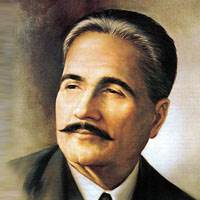
Allama Muhammad Iqbal was born on November 9, 1877, in Sialkot. He received early education in Islamic studies from his father and a nearby mosque. In 1895, after his family moved to Lahore, he enrolled at the Government College University (Lahore) and subsequently obtained a Bachelor of Arts degree.
He is widely regarded as one of the most influential Muslim philosophers and poets of the 20th century. Famously referred to as the “Poet of the East”, Iqbal is acclaimed as having inspired the Pakistan Movement, which led to Pakistan’s creation.
His works include more than thirty books of poetry, including Rumuz-e-Bekhudi, Payam-i-Mashriq, and Bang-e-Dara, elegies such as Barrasi Kashmir, philosophical works such as The economics of the Indian (Hindustani) situation, and politics such as The Secrets of the Self. He also wrote short stories and four acts of poetic drama.
October 11, 1930, is a historic day in the history of Muslim India. On this day, Allama Muhammad Iqbal first came out with his immortal Iqbal Lahore address at the Allahabad session of the Muslim League. The wording of the address was concise and straight to the point. And its purpose was to convince and convert many Indian Muslims to agree to become part of an independent state that would be free from British domination and Hindu Sovereignty.
Iqbal died on Friday night, April 21, 1938. He had just turned 60 and was about to be nominated for the Nobel Prize. His was a turning point for Muslims of the subcontinent because, after his martyrdom, the situation changed. A new period started in the history of the Muslim political freedom struggle.
Read More: My Favourite Personality
 Quotes Love Poetry Romantic Sad Poetry – Funny Poetry
Quotes Love Poetry Romantic Sad Poetry – Funny Poetry
3 comments
Pingback: Biography of Allama Muhammad Iqbal | Remabkable Work – Quotes Love Poetry
Pingback: Allama Iqbal Essay For Class 9, 10 | Outstanding – Quotes Love Poetry
Pingback: My Favorite Poet Allama Iqbal essay with qutations - Islamic Quotes In Urdu